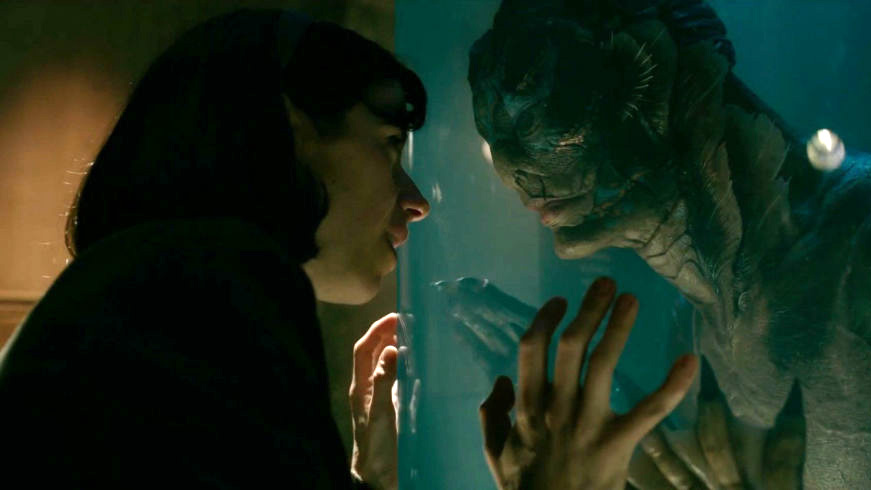Film Review: The Shape of Water
 supplied
suppliedThe Shape of Water
Directed by: Guillermo del Toro
Starring: Sally Hawkins, Doug Jones, Michael Shannon, and Richard Jenkins
Released: December 8, 2017
With what should be an impossible story to make on paper, Guillermo del Toro manages to craft the lovingly created and imaginative film The Shape of Water, which ends up perhaps perhaps the best film in his career thus far and certainly the best of 2017.
In 1960s Baltimore amidst the Cold War, Elisa Esposito is a lonely, mute janitor working in a top-secret government laboratory, accompanied only by her closeted neighbour Giles and talkative coworker Zelda. One day, a mysterious amphibious creature from South America is captured and brought for research. During her encounters with the creature, she shares music and food with him and plans to free him from captivity. Through their non-verbal communication, Elisa begins to fall in love with the creature while under pursuit by the abusive Colonel Strickland.
Guillermo del Toro has been one of the most distinctive film directors of our time, combining childhood fantasy and horror in Pan’s Labyrinth or anime-inspired kaiju action in Pacific Rim. His films are explicitly fantastical and visually vibrant, but also passionate and sincere. While watching The Shape of Water, one can detect in Guillermo del Toro nothing less than love and beauty watching him at work. For instance, while CGI animation covers the eye and gill movements of the creature, the rest of the suit is expertly handcrafted and detailed that really shines on the big screen, showing CGI-beleaguered audiences that practical effects can still work to brilliant effect.
The whole cast clearly brought their A-game and each character is acted with fantastic performances and atmospheres. Doug Jones, famous for his prosthetic performances in Pan’s Labyrinth and Hellboy, shines as the Amphibious Man in his animalistic mannerisms and yet human behaviours. Michael Shannon as Colonel Strickland really projects this sinister aura of domination and abusive authority that always keeps the tension on edge. However, the best part of The Shape of Water is, without a doubt, Sally Hawkins as Elisa Esposito. Despite not being able to speak, Hawkins feels incredibly real and sensual just beneath the surface, as she watches classical Hollywood movies with her neighbour, listens to records with the Amphibious Man, or even masturbates in the bathtub wordlessly.
What keeps The Shape of Water from collapsing from ridicule and what works for me is his emotional honesty, particularly with the depictions of sexuality and love. There is no lying in what Del Toro feels and expresses in his films, and it is beautifully portrayed nonetheless. In lesser hands, this story would probably fall prey to cliche, tedium or apology for a love story between a young woman and an aquatic creature. Only a cinephile like del Toro could take his childhood inspiration like The Creature from the Black Lagoon and transform it into an imaginative fairy tale of love, monsters, and magic. I highly recommend The Shape of Water to anyone who wants to see something beautiful and genuine and for anybody who loves the cinema.




